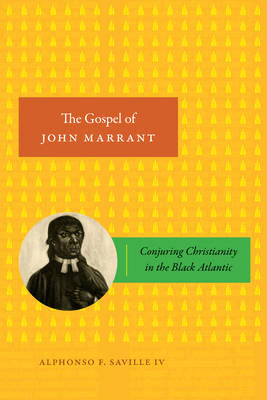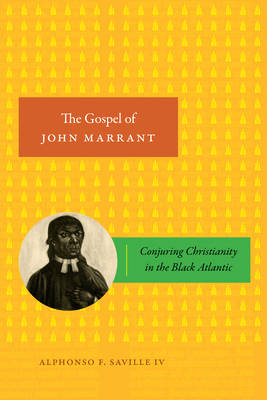
- Afhalen na 1 uur in een winkel met voorraad
- Gratis thuislevering in België vanaf € 30
- Ruim aanbod met 7 miljoen producten
- Afhalen na 1 uur in een winkel met voorraad
- Gratis thuislevering in België vanaf € 30
- Ruim aanbod met 7 miljoen producten
Zoeken
€ 39,95
+ 79 punten
Uitvoering
Omschrijving
The Reverend John Marrant (1755-91) was North America's first Black ordained minister and one of America's earliest Black authors and preachers. In The Gospel of John Marrant, Alphonso F. Saville IV examines how Protestantism and West African indigenous religious practices deeply informed his life and ministry. Saville follows Marrant from his time evangelizing the Cherokee in Georgia to meeting with Black Freemasons in Boston to engaging with diasporic communities along the Eastern Seaboard and in England. Using the Black folk magic tradition of conjure as a lens for understanding Marrant's religious imagination, Saville outlines the importance of Africana religious and cultural themes, symbols, and cosmologies in the biblical interpretation and ritual culture of early Black North American Christian communities. Marrant's life and work, Saville contends, reveal the diverse religious cultures that contributed to the formation of African American Christianity and its evolution into a prominent institution during the colonial and early history of the United States. In so doing, he demonstrates the need to recenter both religion and Africa in the study of African American cultural and intellectual history.
Specificaties
Betrokkenen
- Auteur(s):
- Uitgeverij:
Inhoud
- Aantal bladzijden:
- 208
- Taal:
- Engels
- Reeks:
Eigenschappen
- Productcode (EAN):
- 9781478030447
- Verschijningsdatum:
- 30/08/2024
- Uitvoering:
- Paperback
- Formaat:
- Trade paperback (VS)
- Afmetingen:
- 152 mm x 226 mm
- Gewicht:
- 294 g

Alleen bij Standaard Boekhandel
+ 79 punten op je klantenkaart van Standaard Boekhandel
Beoordelingen
We publiceren alleen reviews die voldoen aan de voorwaarden voor reviews. Bekijk onze voorwaarden voor reviews.







